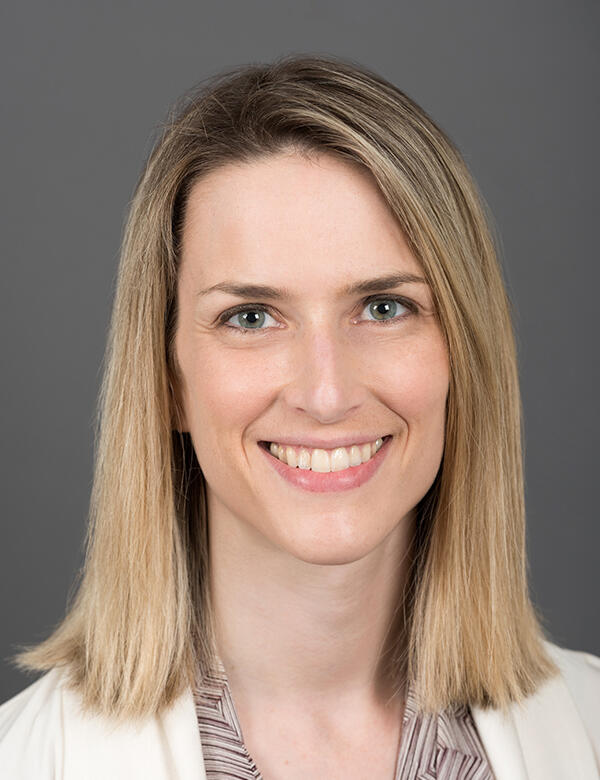BHSc Alumni Spotlight
Biomedical Sciences

Dr. Holly Wobma, BHSc'11
Pediatric Rheumatology Fellow, Boston Children's Hospital, Harvard Medical School
- BHSc Hons. - Biomedical Sciences - University of Calgary
- PhD - Biomedical Engineering - Columbia University, New York. NY
- MD - Columbia University, New York, NY
While there are different majors in the BHSc program, you still get exposed to all three. This mindset of exploring a problem at all levels (microscopic to population health) is something that I have developed further through additional experiences during my training and is profoundly helpful.
Dr. Holly Wobma, BHSc'11
What is your favorite BHSc memory?
The best memories were summer times spent with friends I met in the program.
An amusing memory was that for one semester, to fulfill requirements for both my BHSc major and Nanoscience minor, I had to take classes that partially overlapped in time on different campuses (main vs. foothills). So I would leave the first class 20+ minutes early to run to the Foothills campus on time for a quiz at the beginning of class each week. I can’t believe I did that!
Looking back, what advice would you give yourself as a student?
Since I am happy with where I am now, I would not stir the pot too much. However, as I have advanced through my career, I have realized the value of taking a moment to celebrate small accomplishments, to feel gratitude for what is going well in one’s life in general, and to live more ‘in the moment’, instead of thinking about my life 3-5 years down the road. There is always going to be the next career goal, and it will take time to achieve and then be replaced by something new. When I realized this, it made me reflect on what made me happy on a daily basis.
Now, if I have a positive patient interaction, get an exciting piece of data in my research lab, or spend time with a close friend or family member – those are huge sources of fulfillment. I still have career goals that I work hard to achieve, but they are only a part of the big picture.
What is the best thing about your current job?
As a pediatric rheumatologist (in-training), working with children/adolescents and their families is a major highlight. Helping them to feel better such that they can engage in all the activities they used to (before they became sick) feels very rewarding.
As a scientist in the lab, I enjoy the opportunity to try to be creative to tackle clinical problems. There is still a lot of work to be done!
In both roles, it has been a privilege to work with amazing people – smart, kind, driven – it makes it exciting to come to work every day.
How has your career evolved?
During my time in the BHSc program, I was deeply involved in research. This sparked my interest in a physician-scientist career and MD/PhD programs. For my BHSc thesis project, I worked on designing nanoparticle therapies for cancer. This involved a mix of immunology and biomedical engineering. To further strengthen my background in both, I pursued my PhD in a Biomedical Engineering program working on immunomodulatory cellular therapies. Fast forward quite a few years, and now I am a fellow in pediatric rheumatology, and I work on cellular therapies that could be used to treat autoimmune disease in children.
How did your BHSc degree help you get to where you are now/current career?
In several ways, and I am sure there are more than I outline here.
First, it taught me how to think of a problem from different perspectives. While there are different majors in the BHSc program, you still get exposed to all three. This mindset of exploring a problem at all levels (microscopic to population health) is something that I have developed further through additional experiences during my training and is profoundly helpful. For example, I tend to work in a wet lab, but talking to my colleagues in clinical epidemiology, for example, can still help me focus my work in a way that I hope will make it more broadly impactful in the future.
Second, the BHSc program encouraged involvement in research and skills needed to be a rigorous scientist. This inspired me to pursue a physician-scientist career path.
Third, it helped develop writing and communication skills. This was woven through the program so may not immediately stand out, but these are critical skills that have been useful for applications, grants, presentations etc.
What is the best piece of advice you have received during your career journey?
Talk to lots of people but spend most of your time listening!
